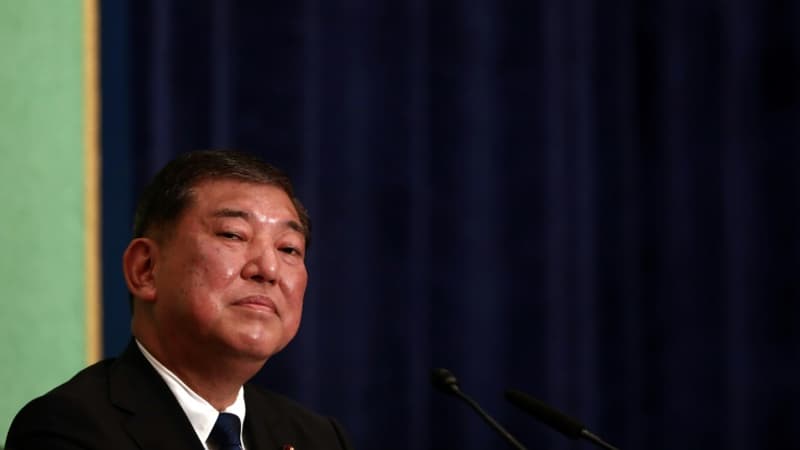It was announced even before he took office. Shigeru Ishiba made the decision to dissolve the lower house of Parliament. For the new prime minister, the legislative elections on October 27 will be an opportunity to “create a new Japan.” The 67-year-old has just taken up the role after taking over as leader of the Liberal Democratic Party last month. The Conservative Party has governed the country almost continuously since its creation in 1955.
Defense as a priority
Shigeru Ishiba is a veteran of Japanese politics. Member of Parliament since 1986, he was also Minister of Agriculture and Defense. Well versed in military affairs, he served in the ranks of the Japanese army. He believes Japan’s security has never been so threatened since the end of World War II. At a time of rising tensions with neighboring China – with an increase in military incidents – Shigeru Ishiba promises to strengthen national security. He does not deprive himself of the parallels between Beijing and Moscow:
For the Japanese prime minister, the threat posed by Moscow to Ukraine is similar to that posed by China to Taiwan. During the campaign, he called for the creation of an “Asian version of NATO” to “provide deterrence against the nuclear alliance of China, Russia and North Korea.”
The idea doesn’t really appeal to Beijing. Just after the election of Shigeru Ishiba as LDP leader, China urged Tokyo to pursue “a positive and rational policy.” And furthermore, Pyongyang’s unpredictability is worrying. North Korea carried out new ballistic missile launches last month and the regime continues to strengthen its military ties with Moscow.
Rebalance cooperation with the United States
Although Shigeru Ishiba presents himself as pro-American and values the relationship between both countries, there are things that irritate him. Like the fact that Japan assumes 75% of the operating costs of American bases. The archipelago is home to more than 50,000 American soldiers. The head of the Japanese government has presented a series of ideas to rebalance the alliance. Like stationing Japanese troops permanently on American soil, perhaps on the island of Guam in the Pacific. He categorically refuses to limit Japanese forces’ access to ally bases and equipment.
In a 2018 interview with the Wall Street Journal, he even said that Japan would be ignored if it simply pledged total loyalty to Washington: “There’s no need to play golf with Trump. It’s important to make them think that Japan is formidable and that we have cards to play to strike a bargain”. It remains to be seen what his approach will be with the next American leader.
Source: BFM TV


